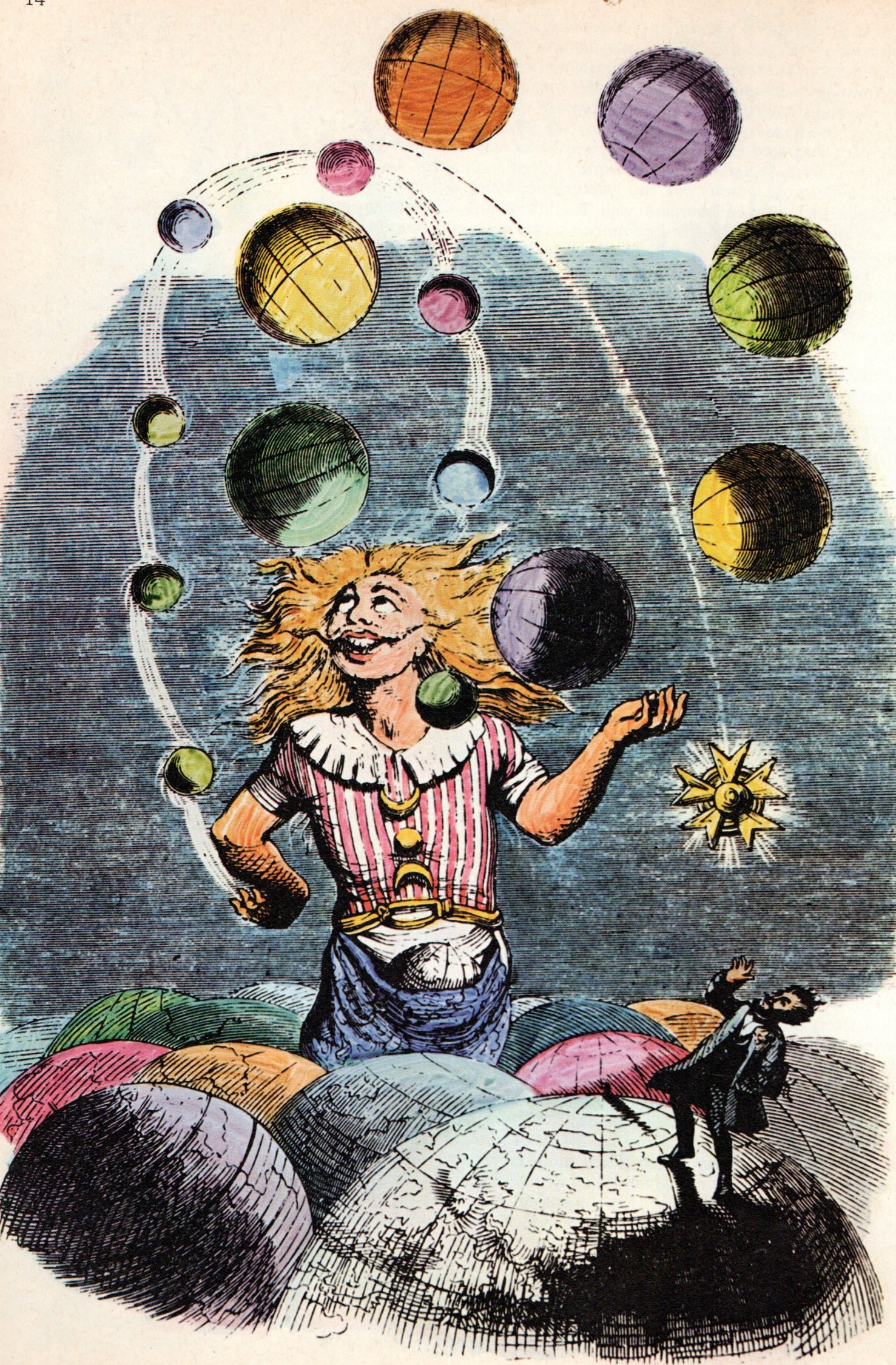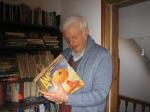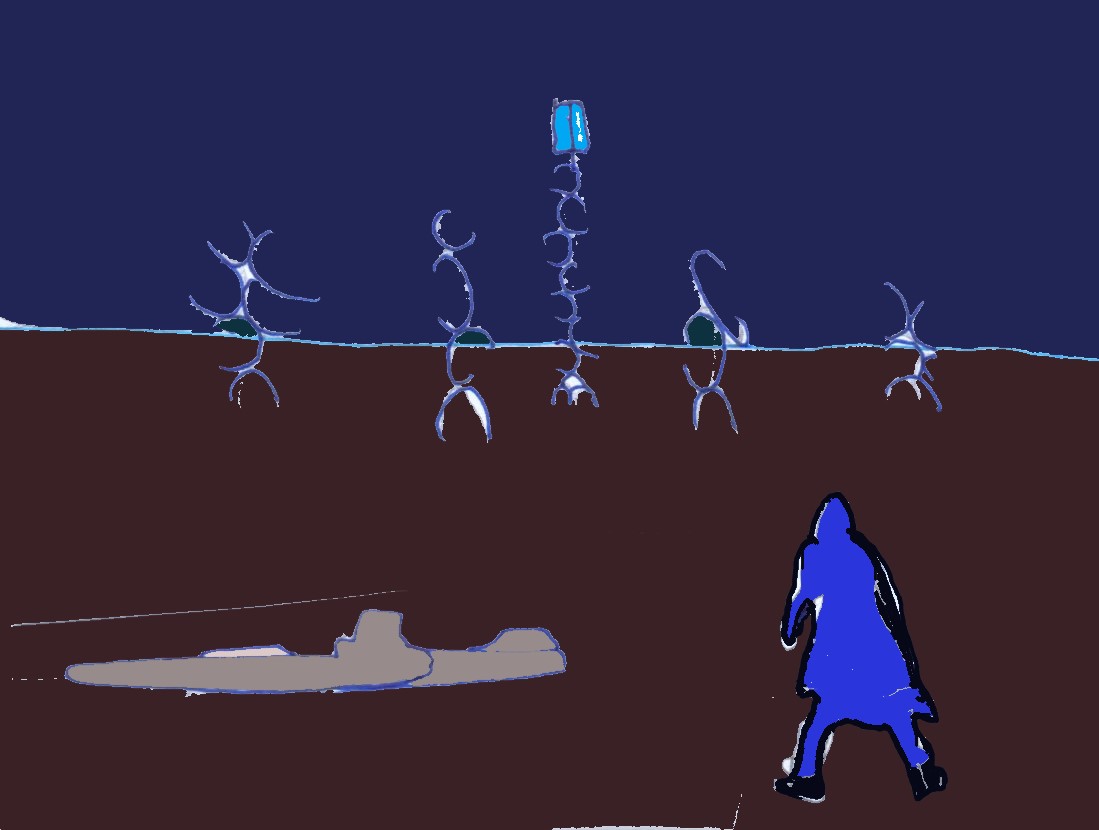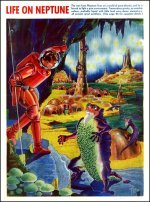Man of the World by Robert Gibson
14: the great complication
The course intensified over the next couple of days. The intellectual challenge, combined with the presence of Pjerl in class, made this desk-and-blackboard existence the most exciting he had ever known.
But it was continually marred by the Great Complication or (to use a term he invented himself), the paradox disease.
Time after time, crazy or illogical behaviour made him his own worst enemy. Open-eyed but helplessly, knowing quite well that he was being stupid, he also knew, every time, that he would soon – thanks to the GC – be stupid again.
For example he had the habit, when Pjerl approached, of not seeking eye contact, of definitely not making any discernible move of his own towards communication; all this being part of the strict urge not to spoil things, not to risk contaminating the hundred-per-cent-voluntary value of any move she might possibly make towards him.
He was perfectly aware of the logical flaw in this – just imagine how things would be if his attitude were shared by everyone! Nobody would speak! And why should it be up to Pjerl to make all the moves? Logic reproved him, told him that he was unjustifiably arrogating to himself a privilege, that he was saying to Fate, “You, please, make her speak, else communication between us must dry up completely.” He was trying to blackmail Fate, though he didn’t want to be a blackmailer.
The logic was sound. Using it, he beat himself in argument.
But then why did this not make a difference? Why wasn’t he moved to change?
Because the argument ignored the main point, namely the lack of equality between him and her.
She, the infinitely attractive one, had no need to tread carefully, for her tread was welcome on every occasion. He, on the other hand, was in no such fortunate position.
In days gone by, he used to be a self-confident man… vaguely he remembered being such a person… but compared to Pjerl, her splendour and glory, he was nothing.
That was his excuse. At the same time, the excuse was no defence against feeling like a fool.
Next question: why had destiny picked on him, Midax Rale, for this role of fool?
The whole business was unfathomable. How did other men get by? They all seemed able to converse with her quite casually and naturally, and yet, she being the woman with the power-to-make-men-into-fools, Midax should have expected other men within range to succumb as thoroughly as he; instead of which, to them she apparently seemed not fundamentally different from any of the other attractive young women in the area.
He clutched his head and cogitated in vain.
Perhaps he was up against the human equivalent of kolv – the non-atomic, irreducible stuff. Perhaps, in other words, the GC was as impervious to analysis as kolv.
Courage would have come in handy. But courage was gone, for infinite value implies infinite risk, and that is too much risk for anyone. The only way out of the situation would be to diminish one’s awareness, to become such a clod as to cease to perceive the value…
And that he would not consent to do, even if it were possible.
A gleam of hope came when Davlr Braze (of all people) remarked, in his crude fashion, during an interval between classes:
“That Pjerl female, I think she fancies you, for some reason.”
The words (“fancies you” being GC jargon for “she’s drawn to you”) gave Midax an indescribable glow.
But how to believe it? How to use it?
The only sign he could have accepted as proof of such good news, would have been a sign from her that he meant as much to her as she did to him. And of course such a thing did not happen. Could never happen – if she was anything like him in her reticence of emotion! But the real reason, the sadder reason it did not happen, he felt in his bones, was that it was not true – and he saw no way to make it true.
He might have talked it over with Davlr, theoretically, except that in practice he would not even dream of doing so. Typically, a contradictory pair of impulses urged Midax to want – simultaneously – both to talk about, and to keep quiet about, his mysterious plight; but always the wish to keep quiet was stronger. The fewer people who might learn that he had turned into an idiot, the better for his pride.
Nevertheless it would be such a relief to discuss the phenomenon with someone! Perhaps if he ever met a fellow-sufferer… but how to identify someone who’d been caught by the GC?
Meanwhile, Davlr’s words, That Pjerl female, I think she fancies you, for some reason, he picked to bits repeatedly. Analyses as exhaustive as those with which he had worn out his brain after encounters with Pjerl herself, carried Midax round and round, getting nowhere except to the inevitable “if only…”
If only I had prolonged Davlr’s words into a proper discussion. Without giving anything away, of course.
Not that he particularly trusted Davlr. But possibly the man knew something. Should the opportunity recur…
It recurred after a walk in the hills. A group of trainees, Midax included, went on a fairly strenuous hike, to relax after a stiff session in the Light-Tank. On the way back they chose a path which brought them close to the immense landscaped enclosure which waited to receive them in a few days’ time.
From ground level the Luminarium beetled greyly, billows of thick cloud hovering low and close to their end of wall.
In the shadow of those weird masses of vapour, the enclosed landscape seemed far more obscure, far less comprehensible, than the clear panorama they had examined from the observation tower on the first day of their training.
Getting so close, and seeing so tantalizingly little of the picture, the men (no women were within earshot) became surly.
“Time the lid was off that box.”
“Or your own lid’ll blow off, eh?”
“I know we’ve got to go in, I know that’s the point. But it’s getting tiresome, not knowing when we’ll be able to get out again. I really don’t like that.”
Davlr interposed, “Friends, do I hear an apprehensive note? When our education isn’t even finished yet?”
“What education?” mused Waretik, and hearing this, Midax knew that Davlr had set this one up – had known how Waretik would respond.
“How’s that?” Davlr asked, as if amazed to hear such a cynical comment from the ultra-dignified ex-Surveyor.
Waretik replied, “The more they tell us, the less we really understand.”
“So you’ve noticed at last,” said Davlr dryly. “Listen, by the time we go in, I tell you, we’ll be the world’s greatest experts – experts, that is, in being lost and confused.”
“So what?” remarked Stid Orpen. “It’s doubtless intentional.”
“You mean,” suggested a hesitant youngster named Bzarn, “they’re deliberately getting us to un-learn, aiming us at a fresh viewpoint. Clean start. That kind of stuff. All very well, but, I wonder – ”
“You jittery as well?” asked Davlr, turning to face Bzarn.
“Not so much on my own behalf.”
“What are you getting at then?”
“I was wondering… about the women…”
“What about them?”
Bzarn explained, “Sending them in there with no warning of what conditions they may have to face… Don’t you think, the way they are – physically weaker, and perhaps less stable – ”
Davlr let off a burst of derision. “Special treatment for the curvoids! Perhaps, in the box, they’ll get it! Who knows, the gut-churners may get churned themselves for a change! Eh, Midax? Should Pjerl be sent home, out of harm’s way, do you think?”
Midax, in a cold sweat, tried to think. He was in a spot. He did want Pjerl safe; he also felt obliged to defend her publicly from any imputation that she was incompetent or lacking in resource. Equally urgently, he had to avoid praising her out loud, lest this lot guess his feelings. How could he cope with all these demands? Inanely, he ended up by saying: “Not likely.”
Laughter all round.
Some loud, some soft. Faces trying too obviously to smooth away their grins. He heard Davlr say the terrible words, “Just because she’s your gut-churner!” Appalling – while simultaneously, in some inexplicable sense, it was what Midax longed to hear.
In such a situation he could only hope that somewhere inside himself he must possess a store of wit, which could spring up, in deft Splasher style, to rescue the moment just in time. And it came, indeed, as it always did – just in time.
“I’m simply saying,” Midax reproved, “that it would be a good thing if the women could pull their weight, tackling the unknown instead of manufacturing more of it.”
“Well put,” conceded Davlr.
It seemed to Midax that he had turned a corner, and he continued, immeasurably encouraged:
“Not that I am passing judgement upon the gut-churners, you understand; doubtless they’re up to something awesome of their own.”
“Like what?”
The others crowded in close. Nobody talked about why women existed; the subject had been exhausted over aeons of debate. But there was still room for some discussion about their aims.
“Haven’t the foggiest idea,” said Midax, cleverly using a figure of speech to match the low vapours billowing a few yards away on the other side of the Luminarium’s great glass wall. “Certainly the women I used to know before I came here were completely uninterested in cosmography or cosmology or anything else except their own inexplicable selves.”
Bzarn put in, “Then maybe this Institute is not the right place for them.”
Midax shook his head, “Ah, but it helps me to have them here.”
“How?” “How?” the questions came poking. He smiled.
“This is how I can be sure that I’m wide awake – the presence of women who are actually interested in history being made – ”
“Far too original for any dream!” agreed Davlr, getting the point, and the entire group applauded.
Midax, now that his tongue had stopped wagging, felt bad at what he had said. He had (he suspected) committed a discourtesy, quite a come-down from former days when the flow of wit, the maintenance of smooth appearances, used to be carried out in such a way as to satisfy his own strict standards of what a man should be. Whereas now it was as though their opinion of him mattered more than his own. Now he was merely concerned to look good in others’ eyes. And not making much of a job of it, either – as far as the one person who mattered was concerned. He fervently hoped that this conversation would never reach her ears. (And simultaneously, inexplicably, he hoped that it would.) Vital it was, that he get good at the looking-good business, no matter how despicable it might be. He had no choice. He must get so good at seeming, that in the end he could be sufficiently wonderful to be matched with Pjerl. It was a desperate necessity for him and a race against time in more ways than one: a race against Sparseworld, a race against his own limits and a race against the impatience of his fellows, who sooner or later would surely get tired of his condition.
The next day, he was reading in the common room amidst a welcome quiet, when a girl called Tarlpa entered. He knew nothing about her except her name; her nature was the usual closed book to him; and since the GC had snagged him and fixated him on Pjerl, his nerves and innards were undisturbed by any other female – so Tarlpa meant nothing to him.
“Midax, would it disturb you if I turned the music on?”
If she had been Pjerl, how little problem there would have been! But because she was Tarlpa, attractive only in a common way, and not at all interesting, nor apt to notice his existence except when her convenience required her to do so, he merely replied, “It would, rather.”
Looking disgusted, Tarlpa went out.
Midax then realized what he had done; realized that he had given absolutely the wrong answer; that “yes, of course, go ahead” would have been the socially correct response. Instead of which, he had committed a blunder by telling the truth when the truth was the wrong thing to tell. The enormity of it – he, the once-smooth Midax Rale, had been so rude as to answer the girl’s question literally instead of giving the standard required reply. The awareness that he was slipping like this, that he must be getting obnoxious, horrified his imagination, but brought only apathy to his will. What could he do? He now clearly – but uselessly – understood how extreme sensitivity in one area must lead to insensitivity in others. And that the excessive vulnerability of one person is a pest to all. All clear as crystal, and no help. He suddenly sympathised with his burdened companions; what a soggy quilt he must have been during these past few days! – naturally no one likes to be continually drenched in somebody’s emotion-waves…
Furthermore he was becoming more devious; his character had acquired a crooked and desperate cunning. Day by day he watched his scruples dissolve as he ceased to care about dishonesty of aim and means. Credit-stealing was no longer beneath him: if the chance came, gratefully would he snatch at any cloaking aura, if it would help him to match Pjerl’s brilliance. ‘Finders keepers’, if he could find the pretence he wanted; for he was prepared to take the credit for any luck; to claim fortune’s charity as an attribute of his own – since all was fair in the Great Complication.
All he needed was the opportunity, to carry out such a theft of prestige. He had no notion of how it might happen. Then, lo and behold, came a happy accident.
It happened when his class were doing some laboratory work, though the apparatus was mostly idle while they read and scribbled for a project on optical theory, trying to assess what the sensual consequences might be if light at all wavelengths had the same speed, instead of speed varying with wavelength.
Pjerl approached him as he sat hunched beside his lab bench. “I’m stuck,” she said, pointing at a text.
Afterwards he reflected that he must have been so exhausted by his own emotions by this time that he did not have the energy to mess everything up. Sheer lack of energy constrained him from blundering.
As they both bent their heads to look at the book she was holding, their shoulders brushed together. His eye caught her profile.
That was when the marvel occurred. He suddenly found himself liking her. It was one of those rare, exquisite, normal, mundane moments in which it seemed as if the entire blazing glory of her could just peacefully shine as an everyday joy. Stabilizing instead of churning; sustaining, not rending.
Quite business-like, he gave her the answer to her question, which was not a hard one. She thanked him for his help. Then he managed to say a sensible thing: that he, similarly, might need her opinion on some things; if so, could he approach her?
“Sure, come up,” she said simply.
As a result he knew he had real, genuine permission to communicate; he had been given a ticket, as it were, entitling the bearer to a conversation.
That was a high point. Unfortunately the strength which had enabled him to obtain this “ticket” did not last long enough for him to make use of it. As the remaining days flew by, he made no use of the permission he’d been given. Why? Why oh why did he not approach and converse as he had been specifically encouraged to do? Merely, he supposed, because he was terrified that it might not work as perfectly as he wanted; so then, what did he want – a bigger ticket? A certificate guaranteeing perfection of outcome? He fumed at his own cowardice.
Clearly, he was stuck with the cowardice as long as he was stuck with the logic of perfection, which argued irrefutably that no risk must be taken with infinite value.
“No failing” meant “no trying”.
Rock-solid was this command: closeness to Pjerl, if it could be achieved at all, must be gained by no taint of effort, for he must draw her to himself because of what he was, because that was how she drew him to her: she did it just by being what she was. She was a miracle of wonder and he must match her. How, then, does one go about being a miracle? All he knew was, it must be done effortlessly, if at all. To need to try was to admit one had no right to succeed – for this was a matter of what one is. Is one good enough, or not?
If the problem exists, the answer must be “not”.
Amid this desperate outlook, it occurred to him to ask himself what still remained of the old delights of life, and the glory of new purpose and of intellectual companionship which had seemed so important when he joined the Institute. What had become of all that? As a force, could it not help him rise above his present state? Perhaps by building bridges of shared learning and discovery between him and Pjerl?
No, it was not strong enough to supply the necessary courage, or to perform any trick that might make the courage unnecessary.
So much, then, for the coruscating life of the mind.
In rare moments of perception, he valued the endless patience and kindness of Pjerl. It was a wonder how she put up with him sufficiently to present him with the occasional jewel of a smile, for how was she to know that he was unable to accept her friendship precisely because it was so natural and relaxed, because of that sad proof that he could not be shaking her cosmos as she was shaking his? How was she to know that he was not indifferent or ungrateful but merely insane? And finally, how was she to know that this Great Complication was a logical insanity which made powerful sense in its own terms? Those terms could not be explained to her or to anyone because they could never be uttered out loud. Not, at any rate, unless the impossible miracle occurred which would make him as perfect as she. Meanwhile all the time he was also aware that this was all wrong, that despite the effulgence of her glory she was only human, and that the supply of her good nature could not be inexhaustible. The point must come when she would lose patience. But he did not know what to do about it.
Finally he dared.
In desperation pretending courage, he approached Pjerl in the common room during a break period and said, “Could I have some conversations with you sometime?”
Pjerl said exasperatedly, loud enough for all to hear, “Midax, you’re driving me mad! You’re putting all the responsibility of your life on me!”
“Sorry,” said Midax. DIE! FOOL! DIE!
He had seen at least one head turn. He closed his eyes. That’s right, eyelids down. Draw the curtain, fool. You couldn’t call existence “life” after such shame as this. Must pretend to do something. Stare at the wall. Stare at the board. Anything.
There was something on the notice-board; he could focus on that.
A leaflet, it was. Pinned to remind people of some forthcoming event. Peer closer; see the words “Blerdon Picnic”. Scan the lines below… the little event seems to be a tradition, a regular procedure, for those soon to go through the Portal.
He remembered that tomorrow, Day Minus Two, the D-2 candidates were scheduled a half-holiday. And most interestingly there was a list of names. Both he and Pjerl were down on that list for the outing.
Absurd as ever, he found that he was counting the hours. As if a dead man could look forward to picnics.
>>>next chapter>>>










































